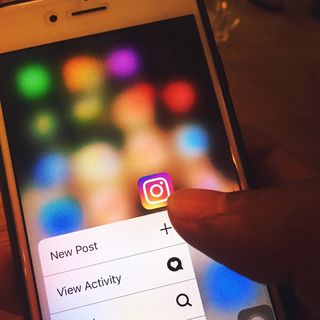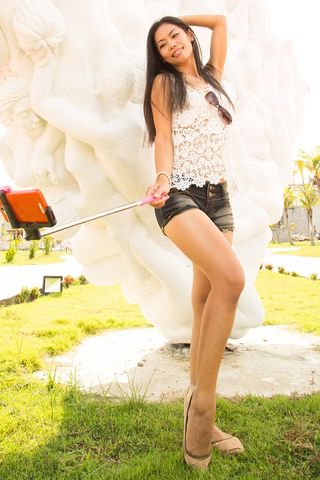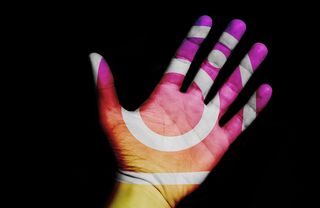Media
The #nofilter Lie
Researchers discover the #nofilter brag is often deceiving.
Posted July 23, 2019 Reviewed by Devon Frye

Instagram, the wildly popular photo-based social media app, boasts over 1 billion active monthly users. Together, those users have shared over 50 billion photos.
It is no secret that many Instagrammers limit their photo sharing to only the most highly curated images. The result is a feed full of posts that bear little resemblance to the messy reality of everyday life. Only the most stunning vistas, the most pleasingly arranged dinner plates, and the most flattering selfies are shared.
On top of being carefully staged and selected, around 18 percent of these photos are filtered before they are posted. When it comes to selfies, that number is even higher—approximately one quarter are filtered.
Insta-users have taken to employing the hashtag #nofilter as a means of communicating the authenticity of their photos. This hashtag is a way of telling your followers that your images are already too lovely to need a filter, or perhaps that you eschew the fakeness of filters altogether. However, research out of the University of Windsor in Canada recently revealed that the #nofilter claim is frequently a lie.
The researchers analyzed over 18,000 Instagram images that included the #nofilter description. (All were from public profiles.) Twelve percent of these #nofilter photos were, in fact, filtered. Though some of the photos featured food or scenery, over half had people in them. This suggests that the #nofilter lie is frequently an attempt to convince followers that your physical appearance is both perfect and completely natural.

Interestingly, #nocrop was another top tag for these filter-free-fakes, suggesting that users who post with a deceiving #nofilter tag might be attempting to mislead followers on multiple fronts about the “reality” of the images they post. The most popular filters used on #nofilter posts were Clarenden, Juno, and Lark. Popular hashtags that accompanied #nofilter were #love, #photooftheday, and #amazing.
Over 250 million Instagram posts are currently tagged #nofilter. If the 12 percent rate holds across the app, that suggests there are roughly 30 million phony #nofilter pics on Instagram.
Psychologists have been concerned about the impact of unrealistically beautiful media images of people for decades. The interactive nature of social media platforms makes these images all the more powerful. We don’t just gaze at Instagram posts, we “upvote” the posts that engage us by adding likes and comments. From this perspective, it’s not surprising that users have learned to do whatever they can to get more eyeballs on their pictures.
Likes and comments are a form of currency on social media. If filtering might earn you more of that currency, why not try it? And if that filter violates the image you’re trying to create of someone who is “real,” you can add a #nofilter tag to sell your followers on your authenticity.
In some ways, built-in filters like those used on Instagram are a relatively mild form of photo-editing. For example, they do little compared to Facetune and other apps that can turn a human face (flaws and all) into a perfectly smooth, big-eyed, full-lipped, nearly-alien-looking version of itself. (Check out this photography project that shows photos of teenagers before and after the teens edited the photos to make them social media-ready.)

Nonetheless, the #nofilter lie contributes to a social media climate where the line between real lives and phoniness continues to blur. If you find that comparing yourself to all that insta-perfection is negatively affecting your mental health, consider taking a social media break. And before you post, think about what you’re trying to “sell” with your images.
Researchers have found that editing photos of yourself for social media is associated with greater body image disturbance and more eating concerns. You might think that posting a filtered, edited, glamour-shot version of yourself will boost your self-esteem, but research suggests otherwise.
It’s hard enough to compare yourself to the carefully polished images of celebrities (or friends!); the last thing you need is to get stuck comparing yourself to a carefully polished (but false) image of your face and body. Those who care about you will be happy to see your real face and real life—no filters necessary.


